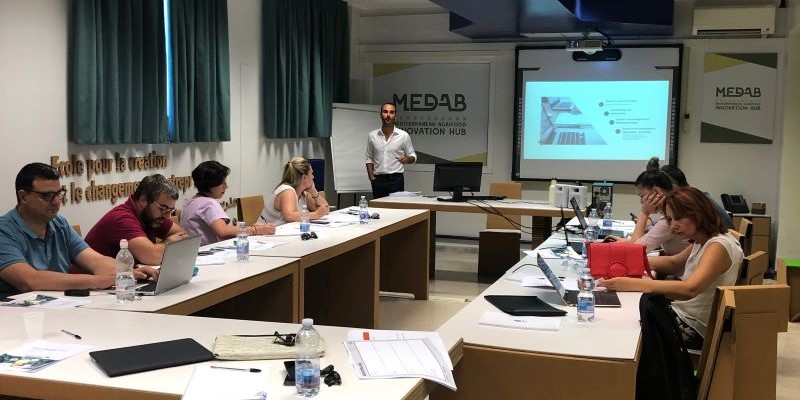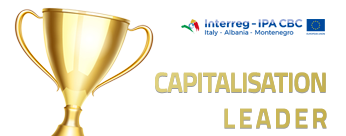
The first day of the training, 15th of July, began with an afternoon session on programs and services for a successful incubation model and how to create a possible incubator model based on the Fila Lab model study, by Donato Macario.
The second day training, was taught by Giordano Dichter and was focused on how to build a territorial innovation system on the FILA model. The lesson was divided into a first theoretical part in which were introduced the concepts of Local Economic Development and the phases of an Incubation process.
In addition, the practical exercises took place in which each country, Italy, Albania and Montenegro, taking into account their incubator. The country prioritized their partnership and the main needs and services that their incubator should have.
FabLab Bitonto study visit
In the afternoon of the second day training, the participants took place a study visit at FabLab Bitonto: a technological center established in 2014, in collaboration with the municipality of Bitonto and Polytechnic of Bari. FabLab is defined as a container aimed at social and technological innovation, in which to carry out cultural activities of scientific-technological dissemination, and Research and Development activities for and with companies, providing technologically advanced spaces and equipment.
The third day included the second session of the lesson by Giordano Dichter. In this second phase, the participants have done practically exercised focused on the budget of their incubator, simulating a concrete situation and thinking about how much budget the incubator would need annually and by which partners and through which activities it could arrive.
Food Performance
After the lesson, took place a food performance by Nick Difino: through the use of ingredients, food is transformed into art taking inspiration from Pollok and taking on the characteristics of a painting ready to be eaten.
On the fourth day, the lesson included only a morning session in which the presentation of two case studies. The first one was the concrete example of an activity executed by an incubator. Examination of innovation support processes (Design Thinking, Design Sprint, Lean Startup), presentation of the incubator Luiss EnLabs by Giuseppe Tomei. The second case study was characterized by the presentation of the MIP Network by Jocelyne Jawhar.
ExFadda study visit
In the afternoon participants moved for the second study visit at Ex-fadda at San Vito Dei Normanni. Ex-Fadda is an urban laboratory, which houses various activities and associations, such as the music school and World Music Academy, experimental school of ethnic music that forms professional musicians, dance and yoga school, association of small crafts and handmade works, sports association with a fencing club, a group of young people dealing with martial arts, a carpentry workshop and a theatre.
XFOOD is the first restaurant in Puglia to employ staff composed of people with disabilities used in the kitchen and in the dining room service. The start-up project, was supported in training and job coaching actions by the Puglia Region. Everything, from furniture to lighting, is inspired by the theme of diversity and the search for the signs of the territory: there is not a chair, a table, a dish equal to another. All the furnishings are the result of restoration, carpentry and tailoring workshops carried out by local workers with the participation of the children of the XFOOD project and the citizens.
The last day was dedicated to a lesson on communication by Nick Difino.
The lesson was focused on how to create an effective communication strategy for an innovation hub capable of involving the territory. The arguments developed concerned the ten elements to make a better communication, tool for an innovation lab, phases of the creation of a communication plan and how to build an ecosystem. All participants were engaged and involved in the conversation, proposing their personal work experience concerning communication.

